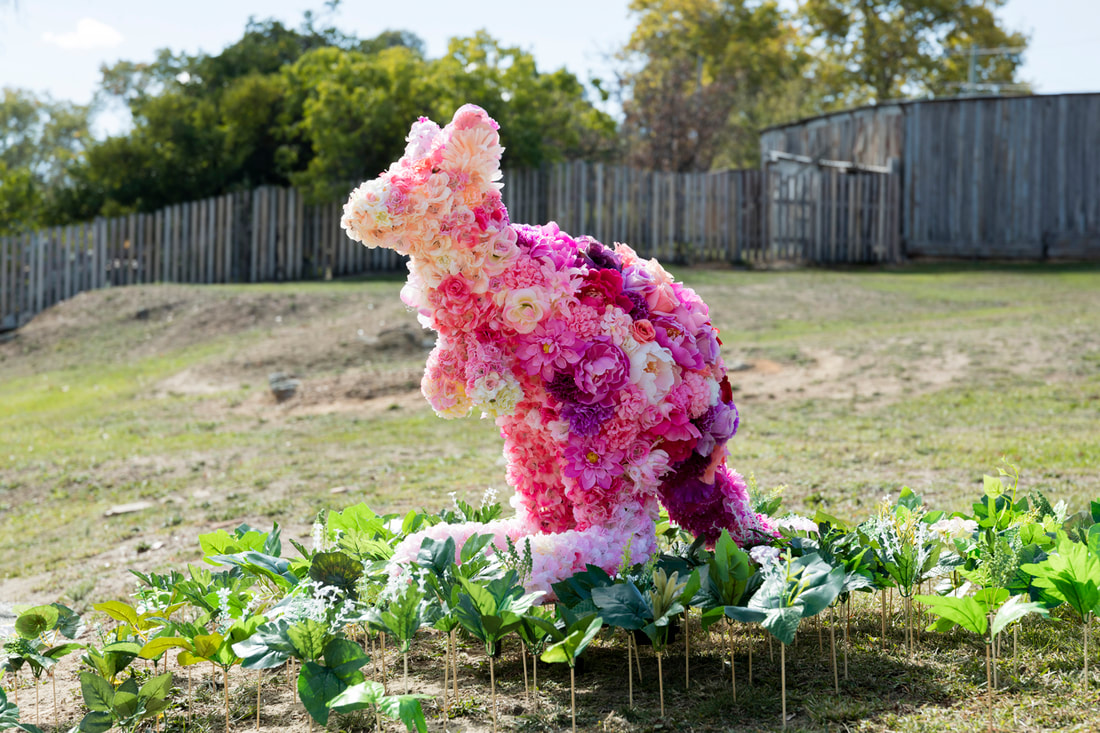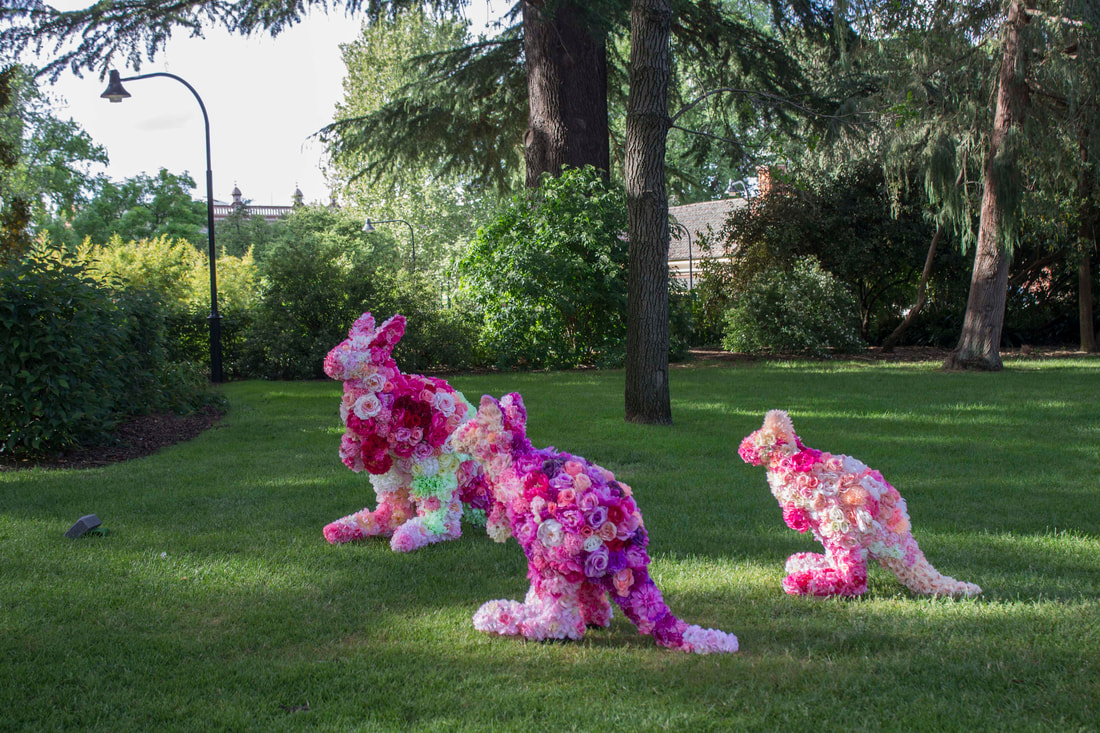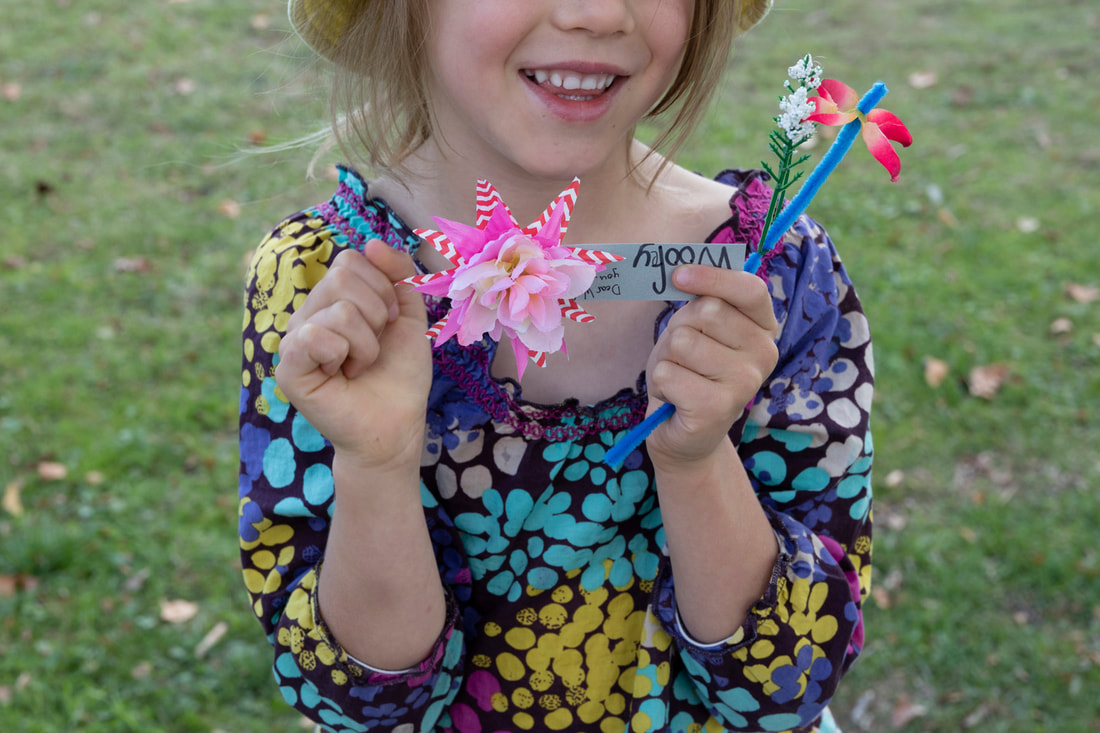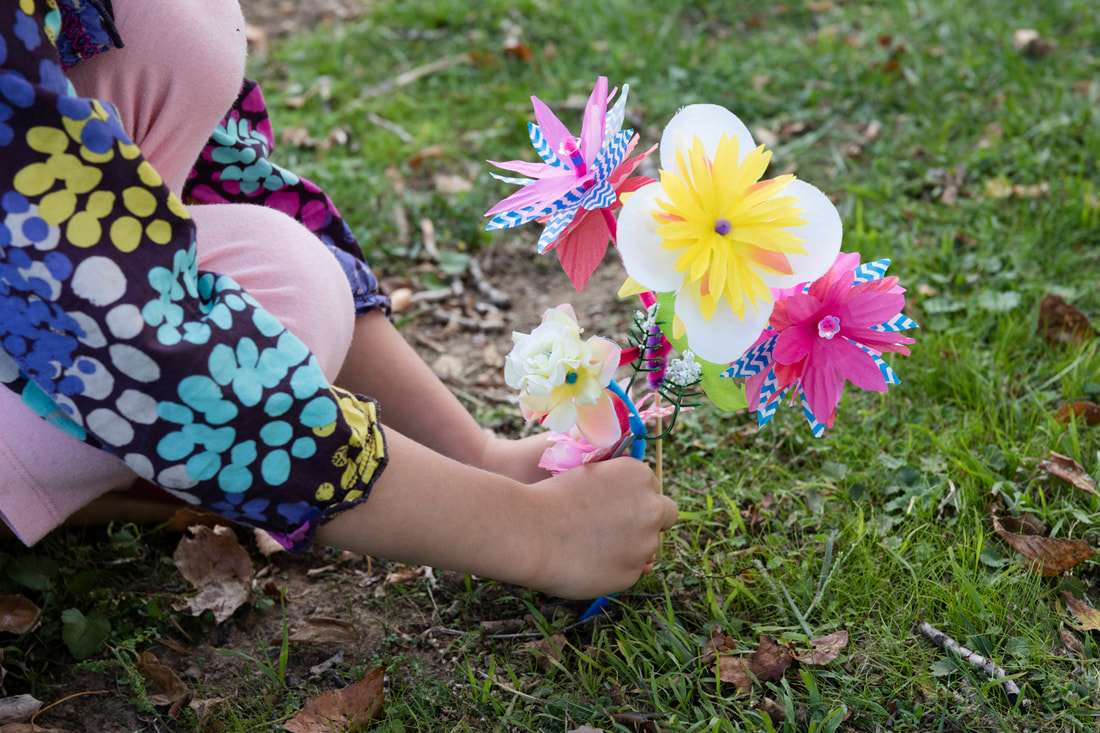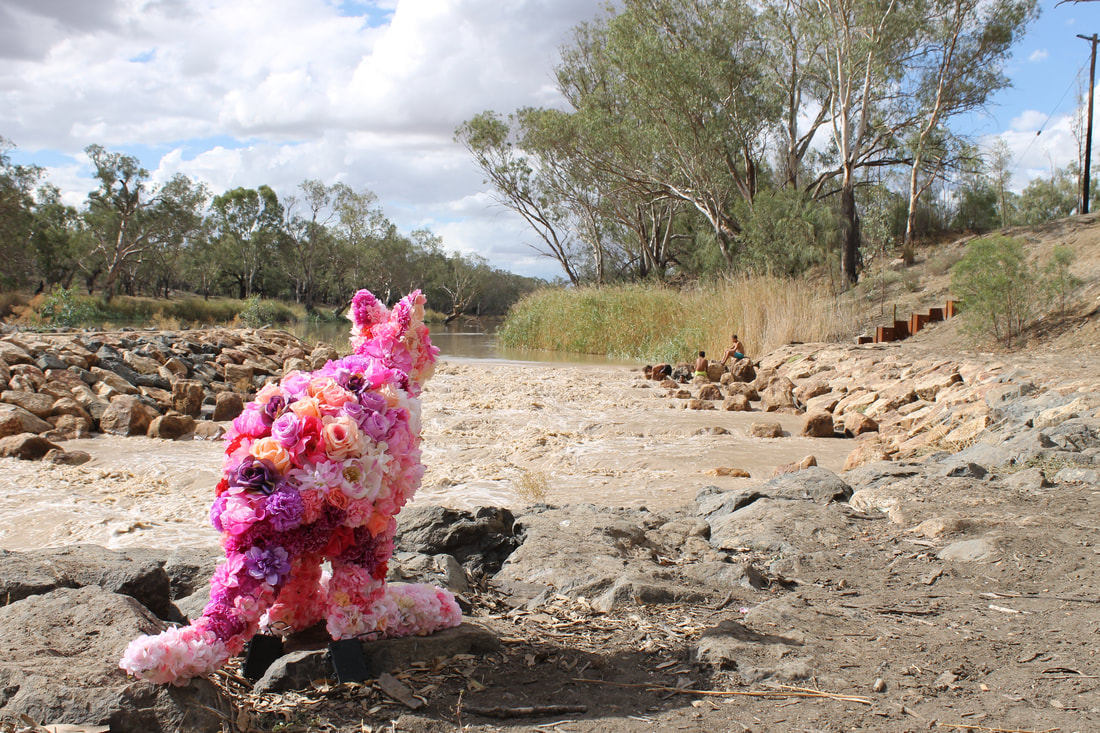Karen Golland Your one wild and precious life, fake flowers and wire. Curated by Lauren Hiller, The End Festival
Photo credit Silversalt Photography
Photo credit Silversalt Photography
I was eight when my family's maroon ford falcon hit a large roo on the Euchareena road. I asked my dad if he remembered it. Remember? He said. How could I forget? There were four of us kids in the car, along with mum and dad. I was in the middle seat, in the front. You were beside yourself, dad said. It took us ages to calm you down.
A friend works as a ranger, and his uniform reminds me of Skippy, a TV show from my childhood. Concerned parents once asked him to tell their children that the animals lying by the side of the road were sleeping. The truth was too awful to speak. Sometimes we don't even move these creatures off the road after we've hit them. Their exhausted bodies become smears in time.
The roads that connect regional and remote communities are treacherous. Roadside memorials mark spots where human beings have died, often without warning and in tragic circumstances. The artificial flowers last longer than cut flowers. They somehow feel more poignant — unnatural reminders of our fragility. We don't mark the places where creatures from the more than human world die. There are too many deaths, and besides, they were in our way.
Borrowing its title from Mary Oliver's poem The Summer Day, this installation asks us to consider the preciousness of all life and pays tribute to the non-human lives lost on our roads.
A friend works as a ranger, and his uniform reminds me of Skippy, a TV show from my childhood. Concerned parents once asked him to tell their children that the animals lying by the side of the road were sleeping. The truth was too awful to speak. Sometimes we don't even move these creatures off the road after we've hit them. Their exhausted bodies become smears in time.
The roads that connect regional and remote communities are treacherous. Roadside memorials mark spots where human beings have died, often without warning and in tragic circumstances. The artificial flowers last longer than cut flowers. They somehow feel more poignant — unnatural reminders of our fragility. We don't mark the places where creatures from the more than human world die. There are too many deaths, and besides, they were in our way.
Borrowing its title from Mary Oliver's poem The Summer Day, this installation asks us to consider the preciousness of all life and pays tribute to the non-human lives lost on our roads.
Karen Golland Your one wild and precious life, fake flowers and wire, ArtState, Machattie Park, Bathurst
image courtesy of the artist
image courtesy of the artist
Karen Golland A flower making workshop to remember, photos credit Silversalt Photography
Karen Golland Your one wild and precious life, Barwon River, Brewarrina
image courtesy of the artist
image courtesy of the artist
